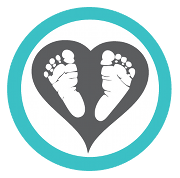Medications and More published the following in quoting from physorg.com:
A new study led by a Boston University School of Public Health research team found that hospital practices, such as giving newborns formula, water
supplements, or pacifiers, significantly reduce the chances that mothers who intend to exclusively breastfeed will succeed. In this study appearing in the Journal of Public Health, researchers found that 70% of first time moms reported an intention to exclusively breastfeed, but only 50% achieved their goal at one week, and that hospital practices were strongly related to these outcomes.
First-time mothers whose infants were not offered supplements were 4.4 times more likely to successfully breastfeed; multiparas were 8.8 times more likely to successfully breastfeed. First-time mothers who delivered in hospitals that practiced at least 6 of 7 recommended steps to encourage breastfeeding were 6 times more likely to exclusively breastfeed than those delivering in hospitals that practiced 1 or none of the steps. Lead researcher, Eugene Declercq, PhD, stated, “Very often research studies yield conclusions that don’t translate easily into changes in practice or policy. In this case, the message is loud and clear – hospital practices can make a difference in early breastfeeding success… and every effort should be made to avoid supplementation of healthy babies of mothers who intend to exclusively breastfeed.”
The full article can be found
here.

























What is the status of plastic bottles and toxins coming out of them when heated? My friend got all glass bottles after she heard plastic ones aren't good. Why are they still on the market if they are dangerous to our health? Any info?
ReplyDeleteThank you for posting your question, and what a timely and important one it is! The concerns over the possible risks from the plastics used in baby bottles and other products have been studied and discussed for the past several years and recently there have been several news releases on the topic. More and more people are trying to minimize their exposures to these plastics and putting pressure on manufacturers to remove them from their products. In March, 6 companies including Playtex Products Inc., Gerber, Evenflo Co., Avent America Inc., Dr Brown and Disney First Years, said they will no longer market bottles made with bisphenol A(BPA), which is a component of the polycarbonate in hard-plastic baby bottles. The Food and Drug Administration and the Environmental Protection Agency hold the position that BPA is safe. Yet the U.S National Institute Toxicology Program, the US. National Institues of Health and the US Centers for Disease Control and Prevention (CDC) are warning that BPA exposure may alter human development. The CDC found that in 93% of people tested there were similar levels of BPA to the levels in mice that caused ill effects.
ReplyDeleteIn the meantime, know that there are alternative products available (such as using glass). The debate seems to be between the American Chemistry Council claiming it is unclear whether the amounts infants are exposed to are harmful, and other scientists who claim there is sufficient evidence to warrant concern and to take action now. More specifically, in animals and human cells, BPA exposure during sensitive early development can result in abnormalities and the development cancer later in life. This is why the Canadian government has banned all BPA containing bottles, and in the U.S. many retailers such as Wal-Mart are planning to stop selling these bottles by next year.
I found a resource that gives recommendations for parents on choosing food packaging, serving containers, and heating and washing plastics, so I will post a longer article soon providing a link and more discussion of this important topic. I'll write about another plastic,polyvinyl chloride(PVC) that also has consumer warnings. Also, on the blog you can scroll down to "Causes and Interests" and click on the link to Consumer Health and Environmental Justice for more information.